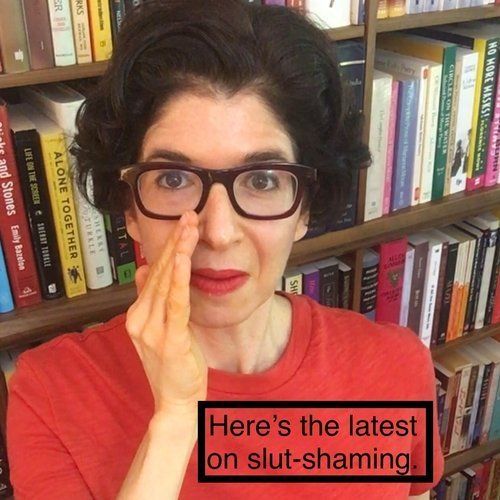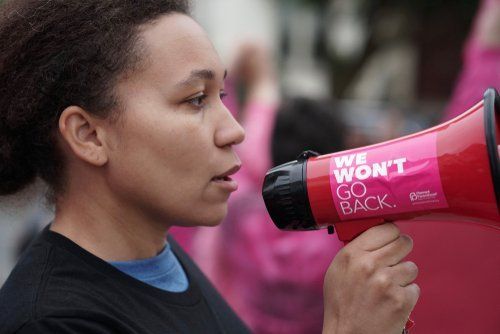THE LEORA LETTER
July 25, 2022

Slut-shaming matters because when people are dismissed as sluts, hoes, and thots, they are denied care and compassion as human beings and in a variety of situations, including when they are sexually harassed, sexually assaulted, and need an abortion.
Birth Control is next

Shutterstock
Opposition to reproductive and sexual health care is rooted in hostility toward women’s sexuality. Women seeking abortion health care often are called sluts, hoes, and thots. And now, after the overturning of Roe v. Wade, new limits on access to birth control—and gay and transgender rights—are coming our way.
Efforts to take away birth control from women are not new. The 2014 Burwell v. Hobby Lobby case, when the US Supreme Court ruled that some employers could deny birth control coverage to their employees, was a billboard announcing that women’s bodily autonomy was under attack.
Last week, the US House voted to pass legislation to protect the right to access birth control. But 195 Republicans voted against it.
I can think of only one reason to limit access to birth control: the belief that there is something morally wrong or deviant with being a sexually active woman, especially a sexually active woman of color—which is nearly always coupled with contempt or lack of empathy for people victimized by rape and sexual assault. In short, banning access to birth control stems from lack of concern for women, especially women of color, as people.
Remember this when you cast your vote in November.
Boarding pass-or fail?
It’s summer—time to go to the beach and feel the sand in your toes, time to get kicked off an airplane because you’re wearing a crop top or tank top. The most recent high-profile incident occurred on Southwest Airlines.
Remind me again why they’re sluts? Oh right…they’re women who did the right thing
Cassidy Hutchinson and Alyssa Farrah Griffin, who testified about Trump’s attempts to overturn the 2020 presidential election, were called “thots and hoes” by their former Trump White House colleague Garrett Ziegler.
On my night table
Bad Sex by Nona Willis Aronowitz
When Rabbis Abuse by Elana Sztokman
“I learned that abusers do not always look like what we expect. Abuse is rarely done by an ugly stranger in a dark alleyway. Usually it’s by a charming, friendly, trusted face in a place that is considered safe and embracing.”
Sexual Consent by Milena Popova
“Yet when it comes to negotiating consent, [the dominant “yes means yes” and “no means no” approaches] do not account for a significant range of sexual encounters that are experienced as violations by individuals but would not be classified as rape…”



